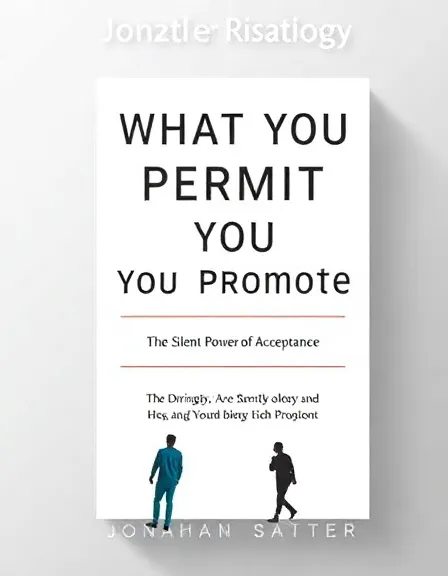Jonathan Satter
Biography
Aspiring Author
Reviews Summary
3.7
Rating Breakdown
3 total ratings
Aspiring Author
3.7
Rating Breakdown
3 total ratings
This first chapter really drew me in with its relatable premise. The idea that silence can be a form of promotion is quite thought-provoking. Satter's writing style felt accessible, making the philosophical ideas easy to digest. I did find myself wondering about the real-life stories mentioned in the description. I'm definitely interested in reading the rest of the book to see these examples explored. The opening sets up an intriguing premise for further discussion. It makes you think about your own passive acceptance in daily life. I'm curious to see how the author offers practical tools for change. This seems like a book that could spark some important conversations. I think it's worth upgrading to read the complete version.
The opening sets up an intriguing premise about the power of inaction. Jonathan Satter's writing style is clear and thought-provoking in this initial chapter. The examples provided effectively illustrate the central argument about permitting and promoting. I found myself reflecting on my own experiences after reading this section. The concept of "the unspoken rule" is particularly compelling and feels very relevant. This first chapter really drew me in and made me curious about the deeper philosophical exploration. I'm definitely interested in reading the rest of the book to see how these ideas are further developed. The cumulative effect of small unchecked moments is a powerful point. I can see how this philosophy could be applied to various aspects of life. The value proposition for the full version seems quite strong based on this preview.
This first chapter really drew me in with its relatable concept. The idea of "the unspoken rule" and how inaction shapes our reality is powerfully presented. Jonathan Satter's writing is clear and thought-provoking, making complex ideas accessible. I'm definitely interested in reading the rest to see how these principles are applied further. The introduction of the core philosophy feels like a significant starting point. This opening sets up an intriguing premise for the rest of the book. I am curious to explore the real-life stories mentioned in the description. The chapter effectively makes a strong case for conscious awareness. I feel this book offers a valuable perspective on personal and collective responsibility. Worth upgrading to read the complete version of this insightful exploration.
